2022-2023 Franke Fellows
Franke Undergraduate Fellows

Maya John
Compassionate Coping is an hour-long online self-compassion program. This randomized controlled trial aims to decrease depression and anxiety symptoms in adults with moderate to high levels of emotional distress. The intervention includes animated videos, informational text, audio-guided meditations, and reflection questions. Although self-compassion has been shown to increase emotional well-being, most self-compassion programs are multiple days, weeks, or months long, and many are in person. A single-session online intervention would require individuals to only participate on one occasion to improve their anxiety and depression symptoms, and can be done from a computer or smartphone! This is the basis of the Compassionate Coping intervention. There is also a significant need to acknowledge the social, economic, and cultural differences in research outcomes. My diverse sample of participants will allow for analysis across gender, ethnicity, and race.
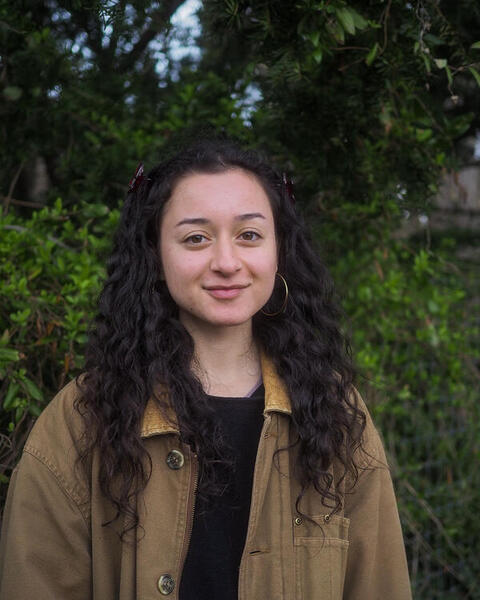
Camilla Ledezma
Camilla’s research focuses on livestock farming–specifically, the Spanish cattle raising that brought about the New World practice–to assess the links between colonial violence, environmental degradation, and the treatment of farm animals. Drawing on history, critical theory, and environmental science, her study hypothesizes that colonial understandings of and modes of relating to non-human animals, often through processes of violence and commodification, have exacerbated social and environmental injustice. In consultation with farmers, scholars, and historical archives, as well as her own observations of cattle operations, Camilla hopes to demonstrate the importance of place-based, mutually beneficial human-animal relations in our effort to realize more equitable and sustainable futures.
Franke Graduate Student Fellows
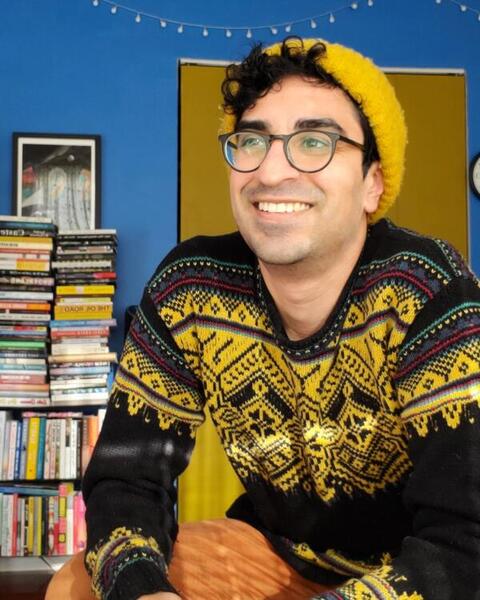
Kamil Ahsan
Kamil’s work focuses on the specific historical contexts of reef regions—specifically Sri Lanka, Belize, the Gulf of Mexico, and the Philippines—that can, to varying degrees, be seen as peripheral because ”global” reef science has long been, in truth, parochial, concentrating most of all in Australia and the Caribbean. Working at the intersection of environmental history, history of science, energy history, Reefs on the periphery is broadly an attempt to understand the varying degrees of integration of scientific output into “global” science, but also to trace how these regions’ vulnerability to anthropogenic climate change has been influenced by the actions of specific historical actors. By way of a colloquium and working group, Kamil’s project aims to bring into researchers who work on these peripheral reefs, but span the natural and physical sciences as well as the humanities. His personal trajectory and practice is multidisciplinary and public-facing: alongside a prior doctorate in Biology, he is also a writer and critic. Kamil is the Chief Editor of South Asian Avant-Garde. His work has appeared in NPR, The Nation, the LA Review of Books, Dissent, and The Baffler, among others.
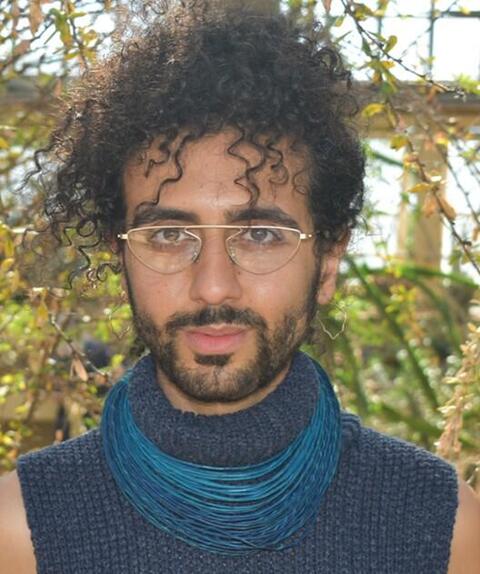
Beshouy Botros
Beshouy Botros is a Ph.D. student in the History department. Animated by feminist and queer of color critique, and beginning with the concurrence of the Haitian Revolution and the Napoleonic invasion of Egypt, their research engages questions concerning indigeneity, sexual and racial alterity, trans medicine, and empires across regions, especially the modern French and Dutch.
As a Franke Fellow, Beshouy will draw from the Description de l’Égypte, the 24-volume set of encyclopedic tomes produced by the Napoleonic savants detailing their findings during the French occupation of Egypt (1798 – 1801). This is a critical text in Egyptian and world history, and the Beinecke Library is one of very few institutions in the world that holds a full first-edition set. Edward Said famously read the French expedition in Egypt, as “the very model of a truly scientific appropriation of one culture by another” and detailed the Description de l’Égypte’s foundational role in the discipline of Egyptology and the genre of Orientalist writing. By working across historic photo processes, printmaking and virtual reality this project effectively reverse engineers these image making technologies and recreates this foundational Orientalist text as a multi-media pedagogical platform. It uses the Description de l’Égypte’s copper plate prints, as a critical orientation to interrogate how changes in the intertwined sciences of printmaking and photography took place in Egypt while also asking viewers to read and move in between the lines of the Description de l’Égypte in order to critically inhabit the colonial fantasies it exhibits.
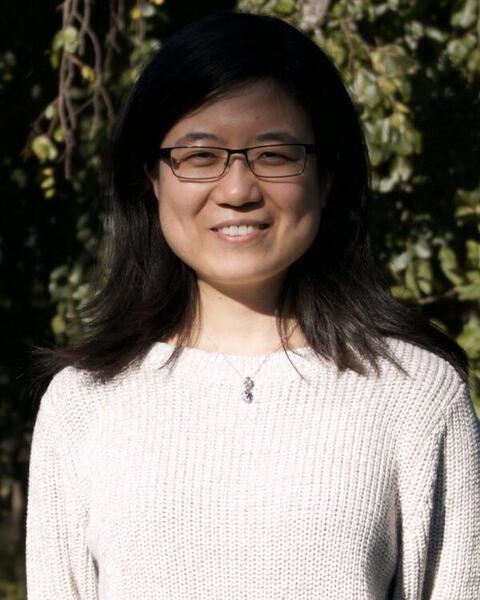
Xinyi Chen
Xinyi is a PhD student in Physics. She studies cosmology, specifically the large-scale structure of the Universe and dark energy, using computational, statistical and machine learning tools. Much of her work aims to improve the constraints on cosmological parameters and to fully use the large datasets of current and future galaxy surveys. She also has a deep interest in the arts, especially filmmaking. She is working on a screenplay that explores the human condition.
As a Franke fellow, Xinyi explores a potential non-invasive assessment of liver conditions. Chronic liver diseases like non-alcoholic fatty liver disease are affecting a large population worldwide and causing substantial burdens on patients and societies at large. These implications call for early and effective diagnoses. The standard reference technique is liver biopsy, which is invasive and potentially risky. Current non-invasive methods, however, are not adequately informative, costly, or not accurate. Meanwhile, the tongue reveals valuable information about the liver, but examination of the tongue is mostly limited to traditional Chinese medicine practice. Can tongue examination be another non-invasive probe of liver conditions? Xinyi attempts to answer the question by studying tongue features and searching for correlations between identified features and common liver condition biomarkers with a quantitative approach using machine learning and statistical modeling.
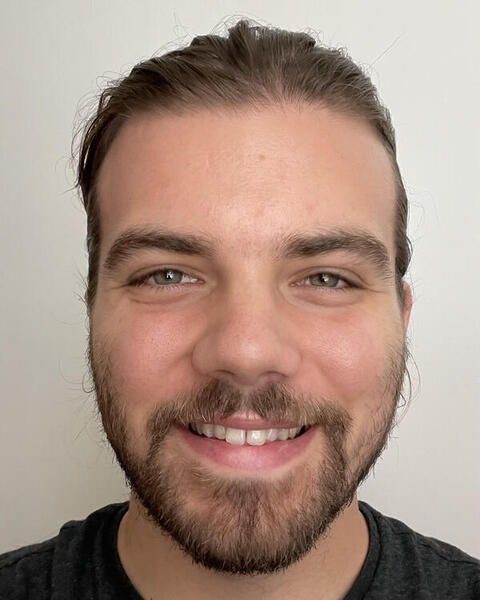
Sebastian Fernandez-Mulligan
Sebastian is a doctoral student in the History of Science and Medicine. His research relates to the implementation of mathematical tools in the 19th/20th centuries. He is particularly interested in the (re-)use of these tools outside their original disciplines and the residue that is left on the math as it crosses epistemic and social boundaries in science. Before arriving at Yale, Sebastian worked as a researcher in condensed matter physics. He studied non-equilibrium electronic states, with the goal of understanding the interplay between magnetism and topology in candidate materials for high-efficiency electronics.
As a Franke Fellow, Sebastian will be studying the exchange of mathematics between Thermodynamics, Information Theory, and Cybernetics. During the late 1940s, entropy was exported from physics to these burgeoning disciplines. As the equation crossed disciplinary borders, its meaning fractured, causing physicists, information theorists, and cyberneticians to argue over what the math actually meant. Divorced from the physical study of energy, the entropy of information theory became part of the austere language of logical inference, while the entropy of cybernetics buttressed physiological metaphors of the mind. Then, in the 1970s, the tables turned. Originally the producers, Physicists now began to employ information theoretic entropy in their own work. Suddenly, there existed two equations that looked alike, functioned under the same name, were used in the same discipline, but carried different meanings. By studying the disciplinary trespassing of entropy, Sebastian will ask two interrelated questions: How does the mathematical formalism shift as scientists acclimatize equations to their disciplinary needs? How does disciplinary practice shift as foreign mathematics become integrated into day-to-day scientific work?

John Hoffmeyer
In the last two decades, an increasing number of Shakespeare scholars have turned their attention to how the dramatist constructs and comments on questions of environment in his plays. John Hoffmeyer and Taylor Kang’s project aims toward engagement with and revision of the existing body of ecocritical Shakespeare scholarship through collaboration with the composer Dr. Sherry Woods and visual artist and engineer Nancy Griffin on their multimedia artwork “Shakespeare’s Gardens.” Together, they shall work to challenge critical frameworks reliant on anthropomorphic impositions of sentience onto nonhuman objects and beings as a form of assuaging human culpability for the climate crisis with the broader aspiration of reflecting on the possibility and efficacy of intermedial approaches to climate change and its representations in works of art, literature, and music.
John Hoffmeyer is a second-year PhD student in Comparative Literature. Their work has appeared or is forthcoming in a variety of journals, including Comparative Literature, New German Critique, Variaciones Borges, and The German Quarterly. As a recipient of the Carpenter Family Fund, John pursued archival research on Luigi Nono that grounded an interdisciplinary MPhil thesis on Nono’s settings of the poetry of Friedrich Hölderlin in his string quartet Fragmente Stille-an Diotima. John maintains an active performing career as a pianist and has been a prizewinner at the Fischoff International Chamber Music Competition, a semifinalist for the Imola City Award, and a Legacy Arts International grant recipient. They recently competed in the 67th Maria Canals International Piano Competition in Barcelona.
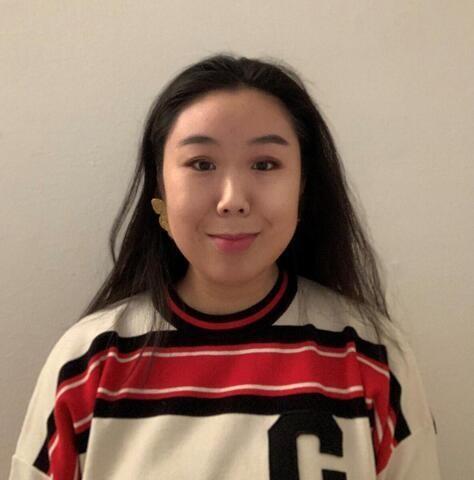
Taylor Kang
In the last two decades, an increasing number of Shakespeare scholars have turned their attention to how the dramatist constructs and comments on questions of environment in his plays. John Hoffmeyer and Taylor Kang’s project aims toward engagement with and revision of the existing body of ecocritical Shakespeare scholarship through collaboration with the composer Dr. Sherry Woods and visual artist and engineer Nancy Griffin on their multimedia artwork “Shakespeare’s Gardens.” Together, they shall work to challenge critical frameworks reliant on anthropomorphic impositions of sentience onto nonhuman objects and beings as a form of assuaging human culpability for the climate crisis with the broader aspiration of reflecting on the possibility and efficacy of intermedial approaches to climate change and its representations in works of art, literature, and music.
Taylor Yoonji Kang is a third-year PhD student in Comparative Literature and Early Modern Studies. Her work has appeared or is forthcoming in MLN, Revue de Synthése, and an edited volume through Quodlibet. Her translation of one of Pier Paolo Pasolini’s essays is forthcoming in a collection through Verso Books.
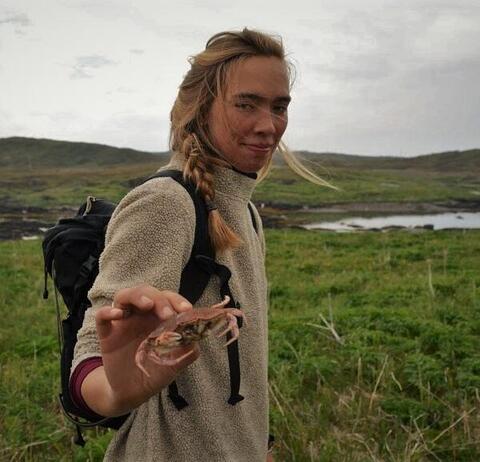
Katherine Meier
Katherine Meier is a PhD candidate in the Anthropology department and the School of the Environment at Yale University. Her research interests concern great ape ecology, ethnoprimatology, and forest/wetland conservation. Undergraduate anthropological training and Postgraduate experience as a research assistant at a long-term orangutan ecology project in Kalimantan, Indonesia, inspired her current doctoral research which takes a transdisciplinary approach to understanding multispecies coexistence at the Lac Télé Community Reserve in the Republic of Congo. By combining ethnographic methods with phenological monitoring and non-invasive dietary analyses, she is investigating the interconnections between gorillas, chimpanzees, elephants, and people at Lac Télé; how they share space and resources while contending with widespread seasonal flooding.
Katherine’s project is a confluence of primatology, Ethnoprimatology, and multispecies anthropology. It investigates the ecology and conservation of the Congo Basin’s enigmatic ‘swamp’ apes through ethnography. In northern Republic of Congo, the Lac Télé Community Reserve is a protected area situated amidst the world’s largest tropical peat swamp forest. Here, 27 forest-dependent human communities are distributed across a vast landscape that is also home to a remarkable density of western lowland gorillas, chimpanzees, forest elephants, and a panoply of other critically endangered species. This landscape is made even more remarkable by its seasonal flooding – a phenomenon to which humans and apes alike have had to adapt and one which sets Lac Télé apart from any other place where African apes are currently studied. However, the predation risk posed to Lac Télé’s apes by subsistence and commercial hunters – precluding the habituation of research groups as is the paradigm in primate research – as well as the difficulties inherent in working in a seasonally-flooded swamp habitat, have thus far deterred primatologists from investing in research beyond course-scale, intermittent density surveys. So many questions about Lac Télé’s swamp apes remain unanswerable due to the lack of basic ecological data which exists for the region and for the Congo Basin rainforests more broadly. Katherine’s research will employ ethnography – semi-structured interviews and participant observation – in communities across the Lac Télé Reserve to foreground local human knowledges of apes and augment the reserve’s dearth of ecological data, highlighting the importance of interdisciplinary approaches to ecology in socio-ecological systems like Lac Télé’s. Her project investigates ape ecology as a response to human practices and beliefs such as hunting, religion, farming, and disease, as much as traditional environmental variables such as fruit availability and flooding regimes. All available evidence suggests that Lac Télé is at an ecological and cultural tipping point. Now more than ever, it needs fine-scale, long-term, and interdisciplinary research which bridges the interests of ecologists, conservationists, and local communities.
Franke Post-Doctoral Fellows

Gita Pathak
Dr. Gita Pathak is a geneticist focusing on integrating multi-omics data to understand neuropsychiatric and aging-related disorders in diverse ancestries. She was recognized as an Early Career Investigator by the World Congress of Psychiatric Genetics 2021, and MVP Science Program 2020. She is the leading analyst for the Gulf-war project for Million Veteran Program, Psychiatric Genomics Consortia, and the COVID-19 Host Genetics Initiative. During weekends, she illustrates, plays board games, and hikes. More about her may be found at https://medicine.yale.edu/profile/gita_pathak/.
Description of her Franke research project:
The majority of the genetic studies have focused on populations of European ancestry. This bias has undermined our ability to understand possible ancestry-related differences in the causal mechanisms linking the genome with disease. Studies investigating gene expression in European ancestry have sample size of 5000 - 30000, which is relatively much larger than other ancestries which is 200-3000. Since genomic technology is being used to guide treatment, commercialized personal testing, and inform public health practice, we must understand how genes may or may not have different roles for different genetic ancestries and not due to different social metrics, which do not translate internationally. Here the proposal is to develop a reference databank for understanding genetically regulated gene-expression patterns in peripheral blood derived from populations of African and LatinX ancestries. This work will investigate if gene expression is truly comparative across all ancestries, by combining smaller non-European gene expression studies into a bigger cohort. The results will be shared via easy-to-access, free-to-use web interface that allows users to visualize and download the results. These population-specific gene-expression models will provide an atlas of reliable associations that can be used to better understand the mechanisms of disease and for the development of personalized therapeutics and preventative interventions that will be relevant to diverse populations.